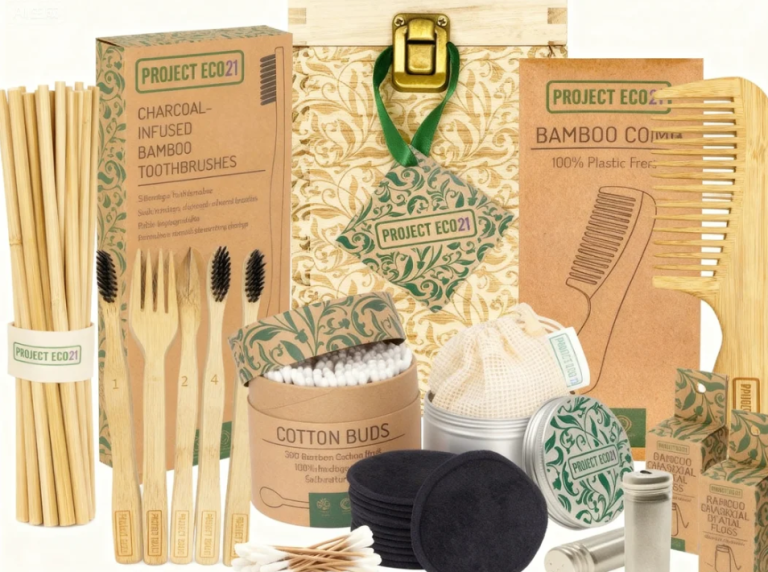
Why I Stopped Buying Cheap Fast Fashion
For years, I filled my closet with cheap sale items — trendy pieces worn a handful of times before the next wave of fashion arrived. It felt like a bargain, but the truth was brutal: I was wasting money, crowding my wardrobe, and contributing to pollution and exploitation.
The turning point came when I discovered that producing a single cotton T-shirt can use up to 2,700 liters of water. Conventional cotton also relies heavily on pesticides that harm farmers’ health and pollute waterways. Synthetic fabrics weren’t better — they irritated my sensitive skin and shed microplastics into the ocean every time I washed them.
Cost of Fast Fashion vs. Slow Fashion: Cheap clothing isn’t really cheap. It comes with hidden costs — to the planet, to garment workers, and even to our own health.Top Benefits of Slow Fashion: Less Shopping, More Freedom
Slow fashion isn’t just a style trend; it’s about building a real connection with your clothes. Instead of buying 10 disposable T-shirts every year, I now own 3 high-quality organic cotton ones — each has lasted over five years.
The principle is simple: buy less, choose well, wear longer. This approach has simplified my mornings. Every item in my closet has a purpose, fits my lifestyle, and reflects my values.

My daily routine often starts with:
- MATE the Label organic cotton joggers (soft as a cloud, still perfect after 50 washes).
- Pact GOTS-certified tank top (free from harmful chemicals, made under fair wages).
This isn’t just clothing — it’s peace of mind.Best Sustainable Fashion Brands I Actually Wear
Building a sustainable wardrobe takes time, but I’ve found reliable brands that tick all the boxes: eco-friendly fabrics, ethical production, and timeless style.
Reformation – Best sustainable dresses for weddings, dinners, or beach vacations. Each piece comes with data on water and carbon savings.Compare: Fast Fashion vs. Ethical Fashion
Worker Rights: Fair Trade Certified™ ensures garment workers earn living wages and work in safe conditions.How to Buy Sustainable Fashion Without Spending More
If you’re just starting your slow fashion journey, here are easy steps:
Buy Secondhand or Resale – Patagonia and EILEEN FISHER both run excellent resale programs.Cheap Ways to Support Sustainable Fashion Near Me
You don’t always need to buy new. Local thrift shops, consignment stores, and online resale platforms like ThredUp or Poshmark are great for finding eco-friendly pieces at a fraction of the cost.Every Piece Tells a Story
Today my wardrobe is smaller, but every item has meaning:
- tentree joggers – each purchase plants 10 trees.
- Kotn tees – made with Fair Trade Egyptian cotton.
- Organic Basics underwear – still supportive after 3 years.
Sustainable fashion isn’t about spending more — it’s about buying smarter. When your clothes respect the planet and the people who make them, getting dressed becomes the easiest (and most fulfilling) part of your day.
If I can do it, so can you — it all starts with conscious choices.
Declutter Your Closet – Keep only what you love, donate the rest, and make a list of what’s missing.
Check Labels Before You Buy – Look for GOTS, OEKO-TEX®, or Fair Trade Certified™.
Invest in Basics First – A well-made T-shirt, quality denim, and a durable jacket will outlast dozens of cheap pieces.

Cost per Wear: A $15 fast-fashion T-shirt worn 3 times = $5 per wear. A $50 organic cotton tee worn 100 times = $0.50 per wear.
Environmental Impact: Recycled or organic fabrics save thousands of liters of water and cut emissions.
MATE the Label – Best for everyday loungewear and basics. Their sweatshirts never fade or pill.
Patagonia – Top choice for outdoor wear. Their 100% recycled fleece jackets keep me warm in winter and light in spring. (My daughter loved mine so much, I had to buy her one too!)
Boody – Best affordable bamboo underwear. Breathable, moisture-wicking, and made by a certified B Corp.
EILEEN FISHER – Great investment for office-ready or weekend staples. Their “Renew” program lets you return old pieces for resale or recycling.


